[ad_1]
The CommBank Matildas have created an epic movement for change. Records have been smashed. Fans packed stadiums, live sites and living rooms across Australia. Merchandise sales soared and women’s football was the daily topic of conversation across every corner of Australia.
Almost 64% of Australians tuned in to watch the semi-final against England on Saturday 19th August, making it the most watched TV program since the OzTAM audience measurement system started in 2001.
The FIFA Women’s World Cup Australia & New Zealand 2023™ has united our nation. It has been a flashpoint moment for Australian football and is inspiring a whole new generation.
To unlock the potential of this pivotal event for women’s and girl’s sport, over 400 global trailblazers, local changemakers, community leaders and junior players gathered in Sydney on 9th August 2023 for The Winning Playbook: Leading Innovative Change in Sport Forum.
The NSW Minister for Women, Jodie Harrison, opened the event saying: “Today is about coming up with a game plan to keep future generations of girls loving and playing sport.”
Minister Harrison also spoke about the Government’s commitment to support all levels of football through the $10 million NSW Football Legacy Fund.
Let’s dive into what we learnt:
1. LEADING CHANGE
James Johnson, CEO Football Australia opened proceedings with an urgent call to action: “Our challenge to governments, corporate entities, broadcasters and sports’ governing bodies is to make a stand – commit, invest and grow women’s sport because women’s sport is real. And it’s here to stay. Women’s football in Australia has proved that to us all.”
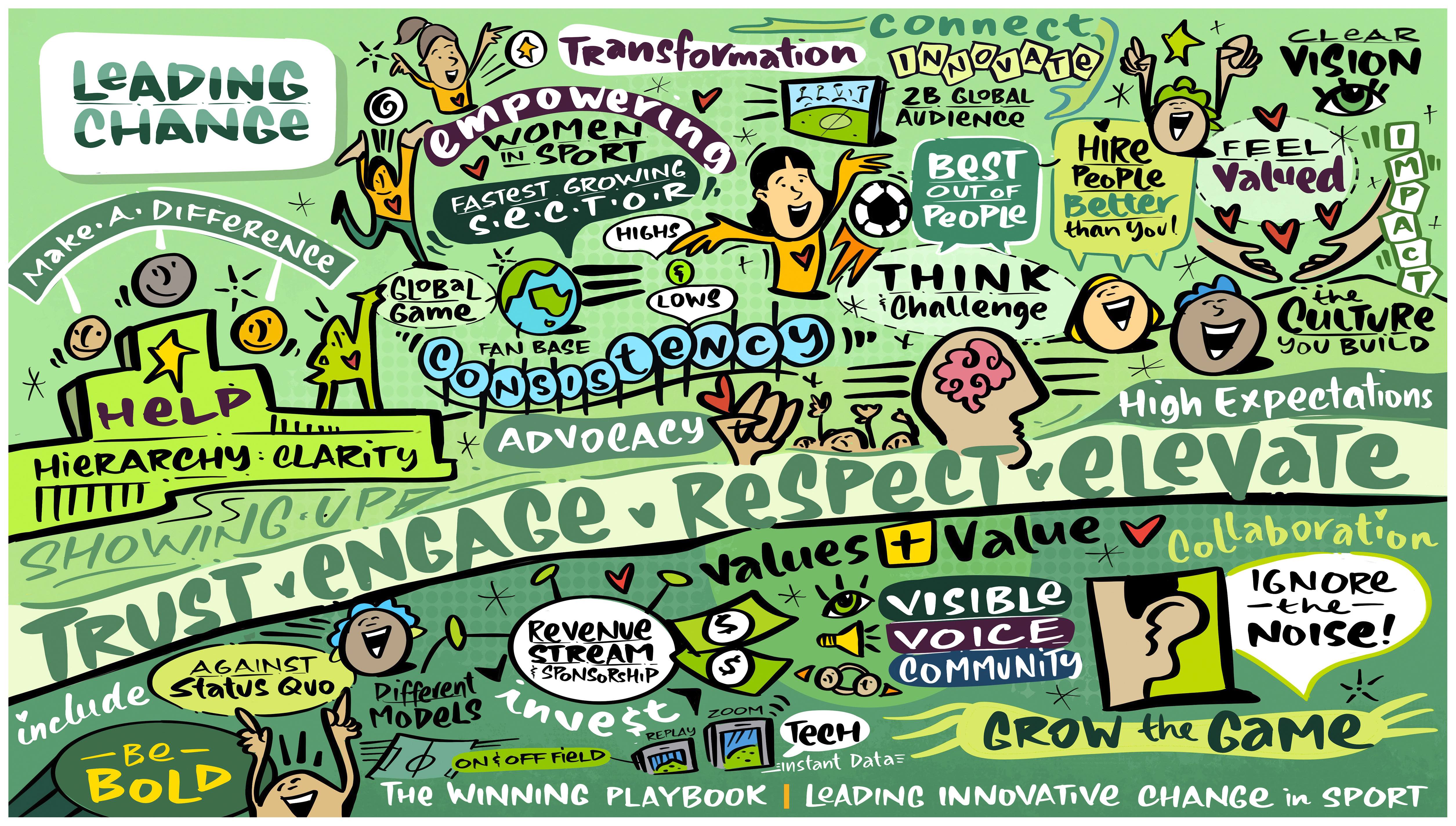
When it comes to leadership, you want to listen to Jill Ellis, the most successful coach in the history of the US Women’s National Soccer team and the only coach, male or female, to win back-to-back World Cup titles (2015, 2019) since 1934.
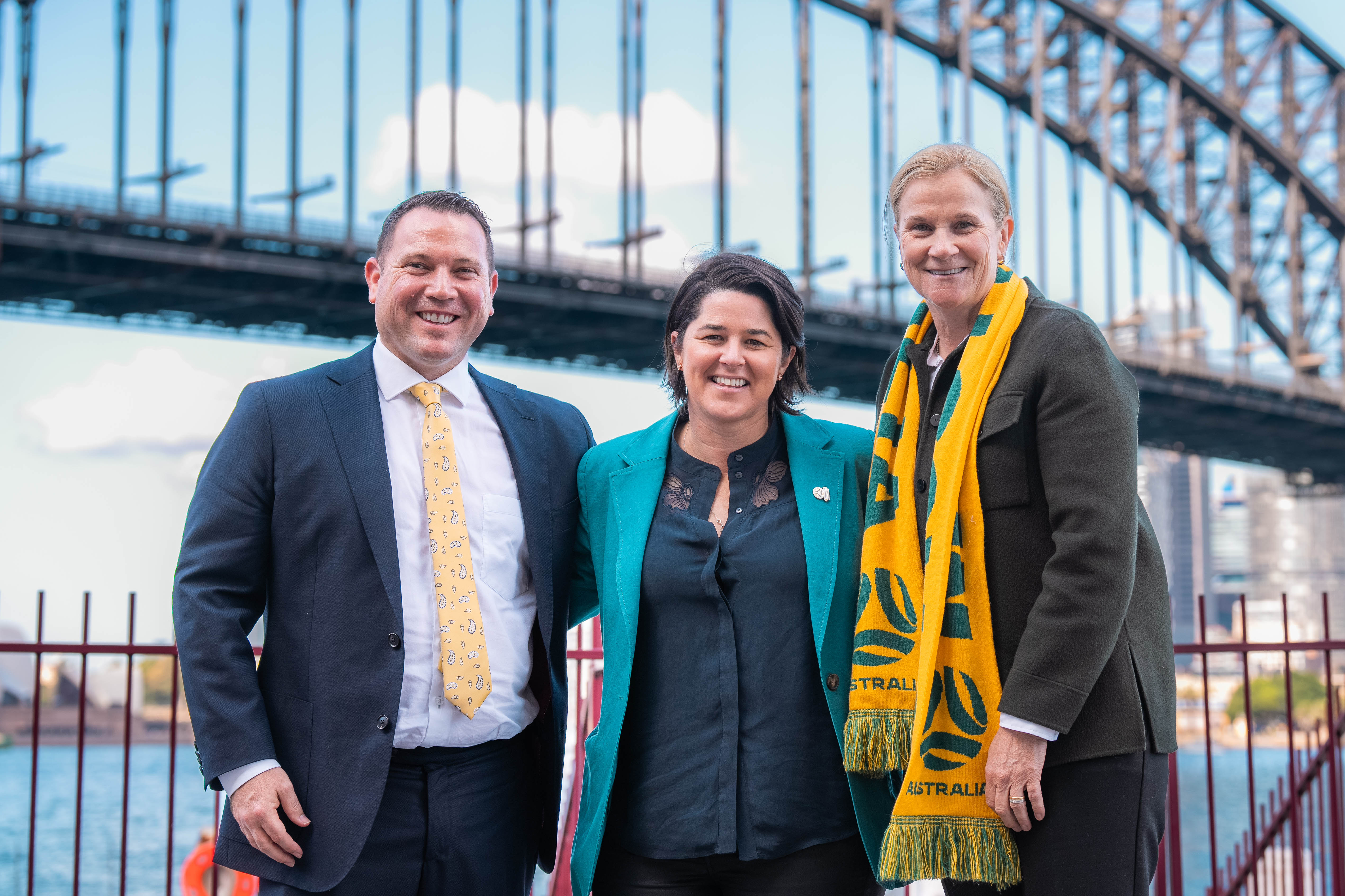
Jill called for more women in leadership and decision-making. “We need people in these positions to look at everything from television exposure and rights to sponsorship deals,” she said.
3 key leadership lessons from Jill:
- Embrace the ‘living one day better’ mindset; to be better tomorrow than you are today. This mindset is liberating because it’s not only focused on medals or status, it’s a focus on growth. This ultimately pushes you to great heights.
- Control the internal, manage the external.
- In any successful organisation, people want two things: to feel valued and to have clarity in their role. So, make people feel valued and make sure they understand their role – remove any grey areas. People struggle in grey.
2. PARTNERING FOR SUCCESS
Stephanie Rudnick, Angel City FC, Head of PR and MKTG, Head of Global Communications blew everyone’s minds with the story of Angel City FC – a women-led model of entrepreneurship, a celebration of diversity and an incubator of community.
One of ACFC’s innovative approaches to revenue sees players drive ticket sales via their own social media channels. This win-win strategy brings their audiences to games and players receive 1% of net ticketing.
Stephanie also spoke of how community is their ‘secret sauce’. Their brilliant partnership model has a 10% community impact commitment – where the partner invests in community initiatives. This drives support in value-based ways.
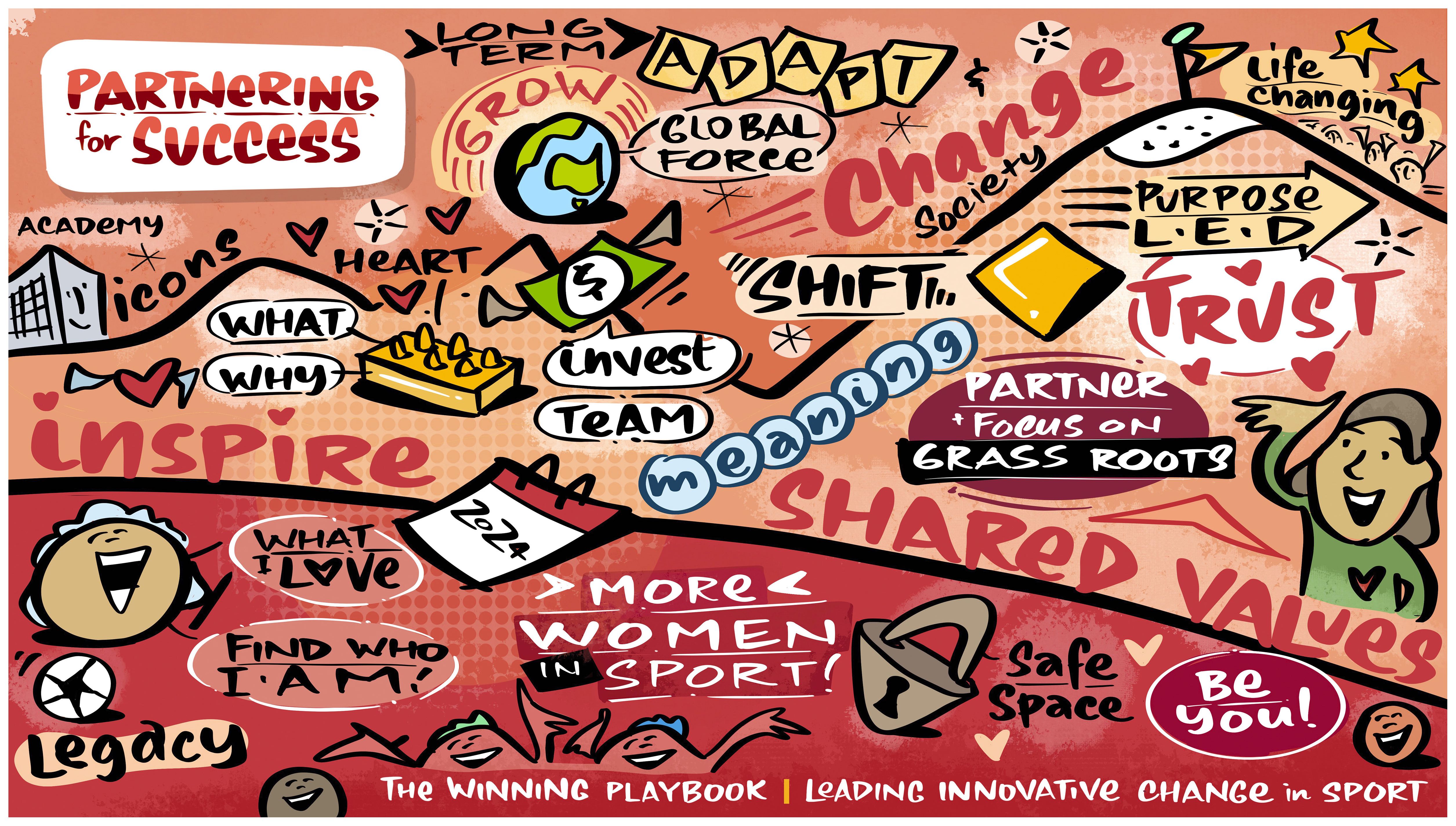
Values-based partnerships were also key to the learnings shared by LEGO and CommBank about their successful partnerships with Football Australia.
“When considering partnerships, look behind the fame; look for mutual beneficial value,” said Angie Tutt, LEGO Australia, Senior Director, Head of Marketing, who has seen LEGO Australia become the first official partner of Football Australia’s Legacy ’23 plan – inspiring and developing tomorrow’s footballers through inclusive play.
Tamisine Heath, CommBank, Executive Manager, Brand Communication and Sponsorship shared more of the benefits that CommBank have seen through their long-term support of women’s sport: “There’s some beautiful research as to why people are more likely to increase our reputational metrics when they’re looking at us, because we’re supporting female sports and we’re actually driving purpose-led objectives rather than just sponsoring a sports team,” she said.

Rachael Neumann, Flying Fox Ventures, Founding Partner and Angel City FC investor shared a similar sentiment when discussing the development of new investment and operating models. “Investing in women’s sport is good for my values and for value,” she said.
3. DOING IT DIFFERENTLY
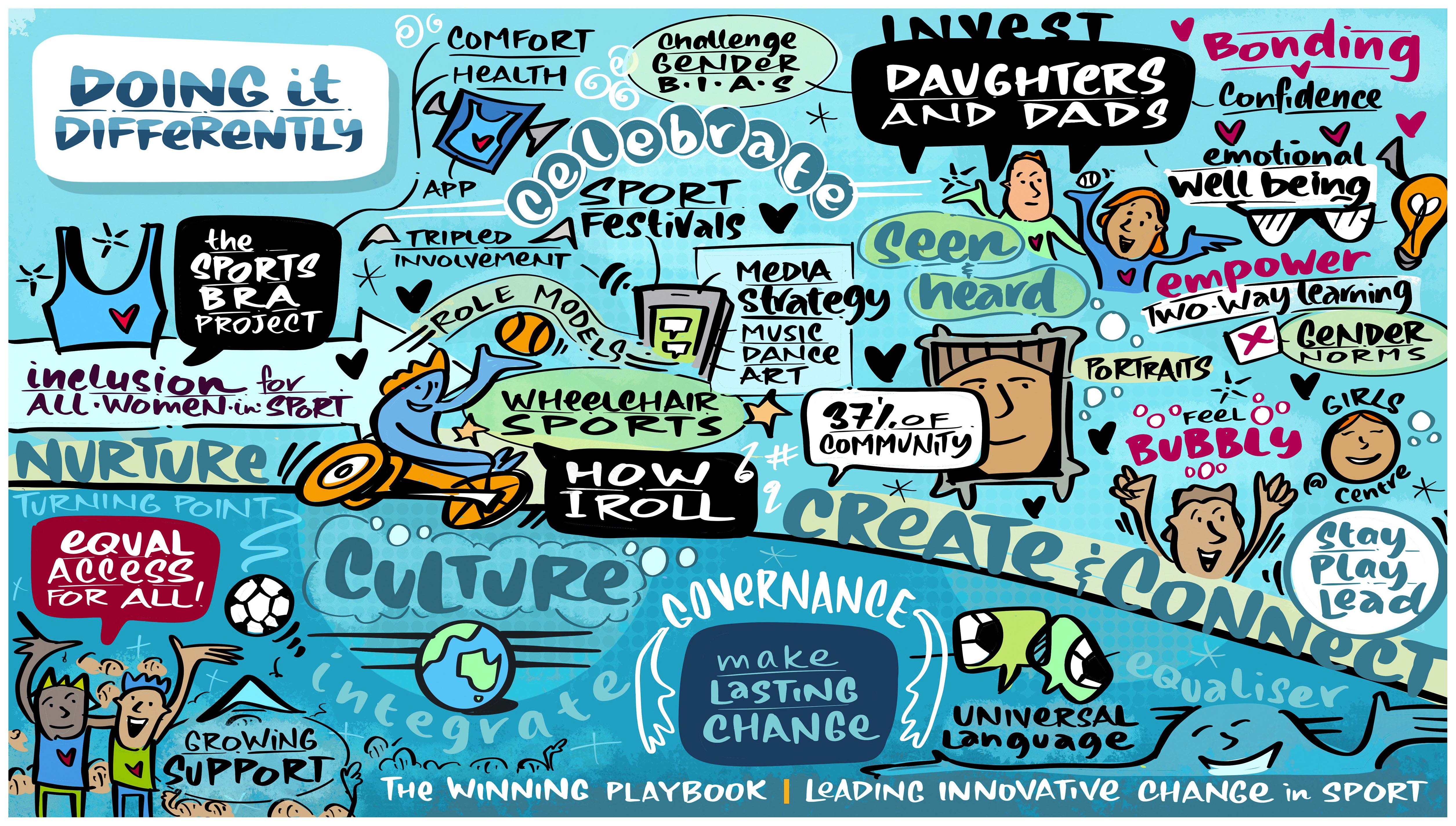
Kerry Turner, NSW Office of Sport, Manager, Participation & Partnership took us through a variety of innovative projects that are taking a fresh look at engaging women and girls in sport; from boosting confidence with the Daughters & Dads Football program, to embracing music and art to inspire through the How I Roll campaign and getting athletes access to essential undergarments with ‘The Sports Bra Project.’
The key takeaway? Women’s sport isn’t the same as men’s sport, and this gives us the amazing opportunity to do things differently.
4. LEGACY FOR THE FUTURE
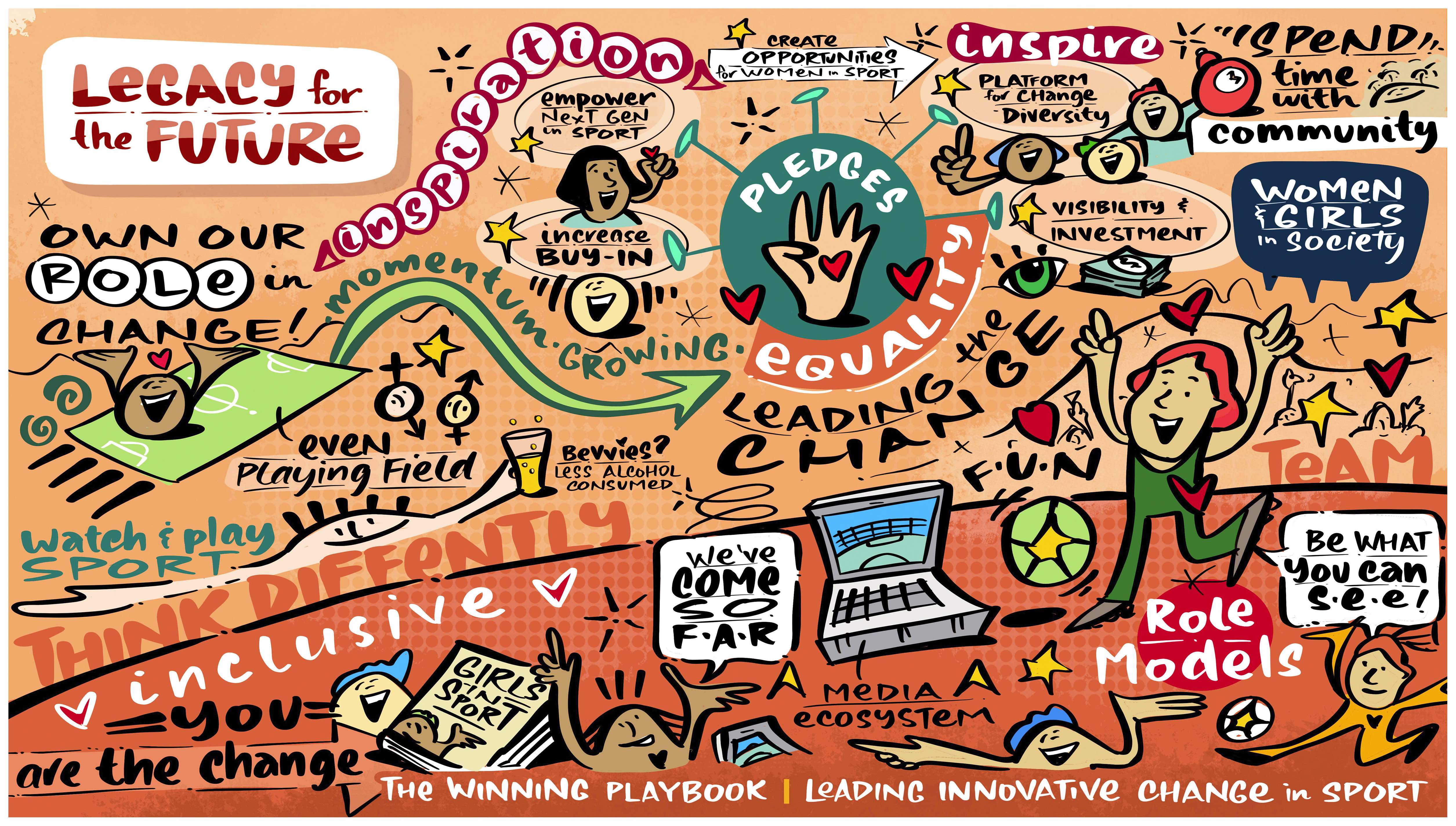
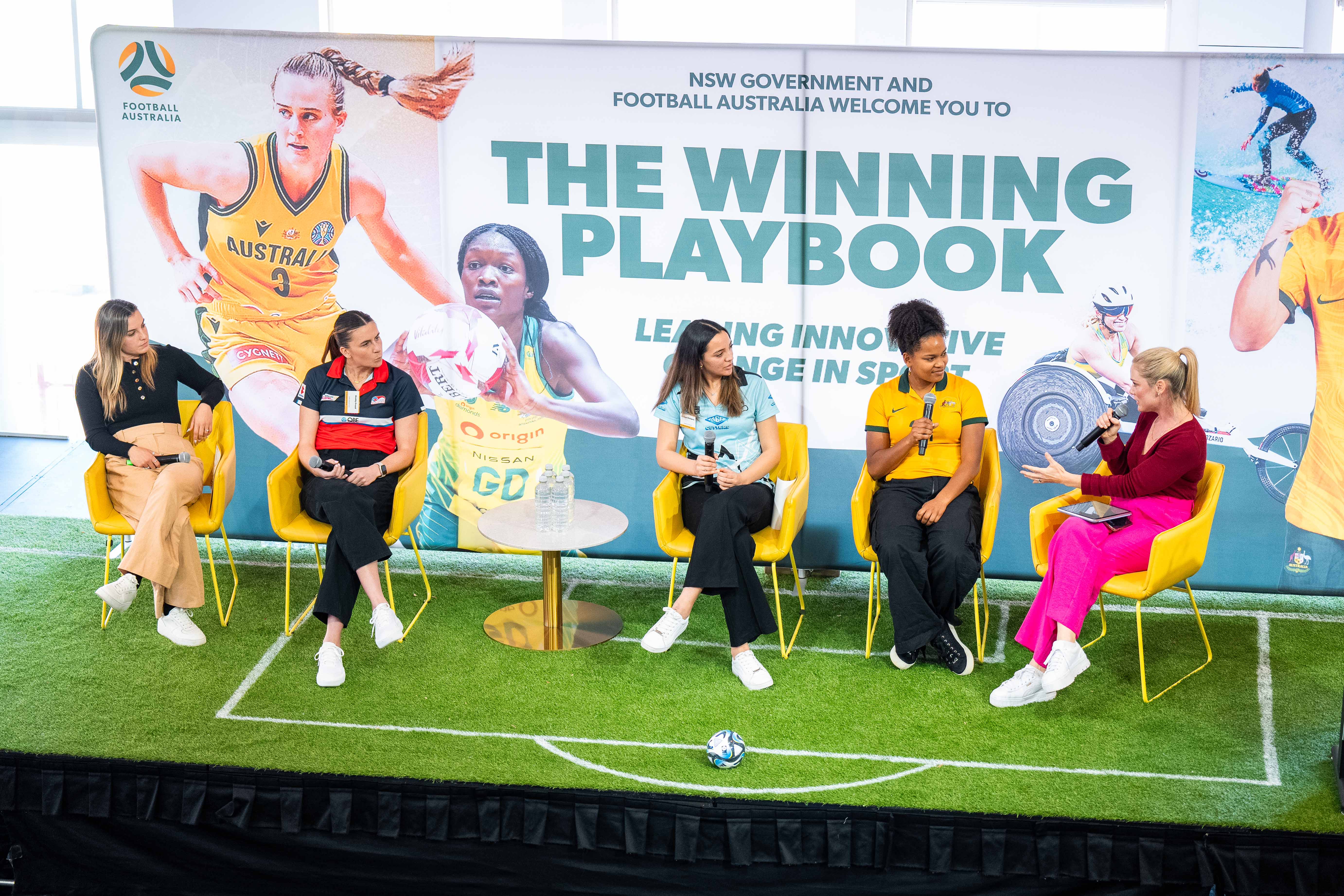
Current athletes Chloe Logarzo (CommBank Matilda) and Maddy Proud (Co-Captain NSW Swifts) spoke about changing the sporting landscape for those who will follow in their footsteps through advocacy, leadership, strategy, broadcasting and even children’s books.
Up-and-coming sports stars in Naomi Chinnama, CommBank Young Matilda and Rheagan Sialeipata, Sutherland Stingrays shared how the landscape has changed significantly for these future legends, but there’s still a long way to go.
Looking towards the future, Sarai Bareman, FIFA, Chief Women’s Football Officer spoke of the need to use data to make smarter decisions and inform plans and strategies, with the power of the volume of fans coming through the stands: “The World Cup is the biggest lever you can pull. 1.3 million fans have walked through the turnstiles so far. We get this beautiful accelerator effect,” she said.
Sarah Walsh, Football Australia, Head of Women’s Football, Women’s World Cup Legacy & Inclusion agreed: “We need to look at the ecosystem to change behaviours in. Our next free to air deal will be better than the last. We now have the data and can look decision makers in the eye. This is a movement for women and girls and our position in society.”
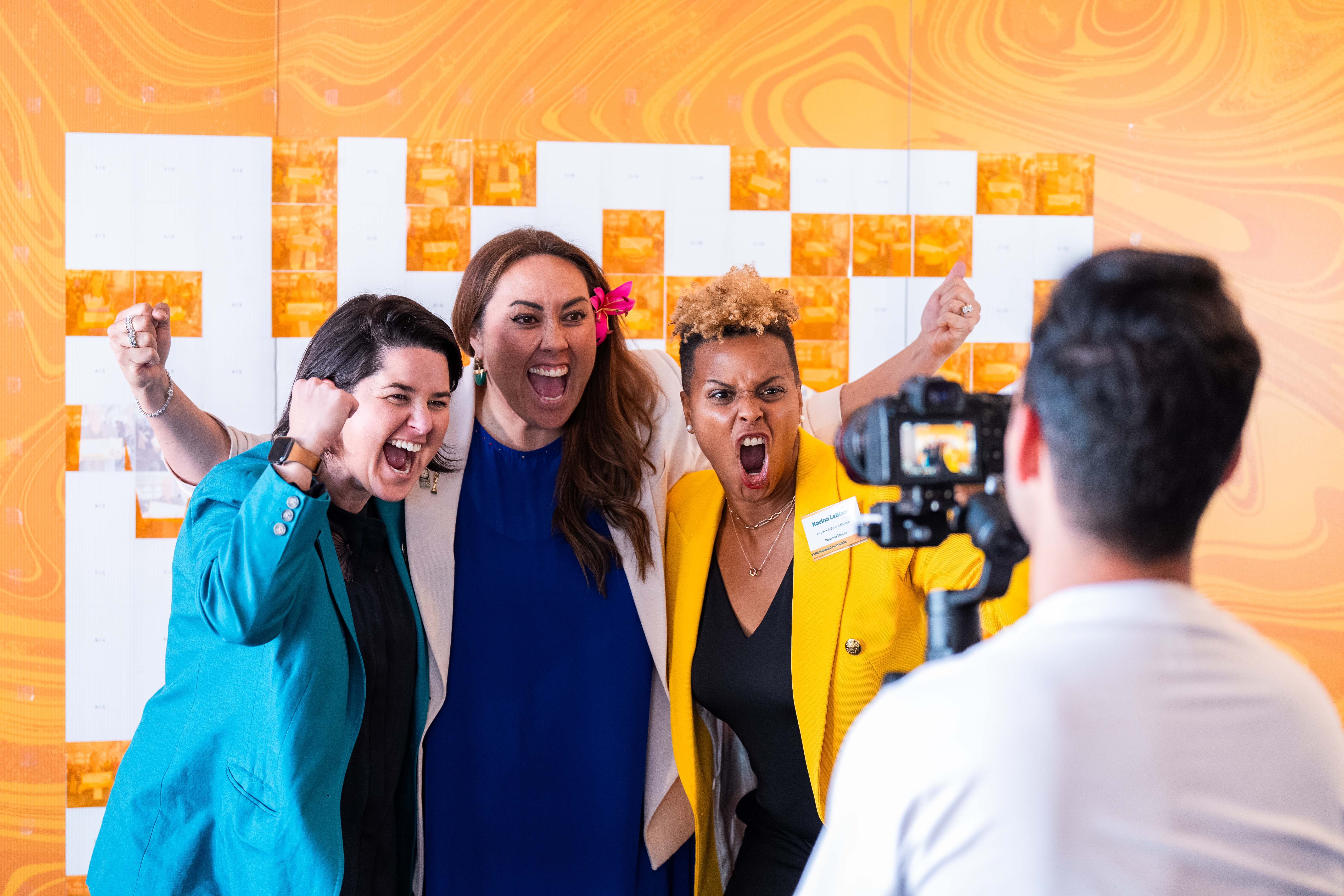
The closing keynote came from Fatma Samoura, FIFA Secretary General. As the first female, non-European to hold the role as head of FIFA’s administration, Fatma has been a trailblazer from the moment she stepped into role and has overseen unprecedented growth in women’s football.
“This World Cup is a turning point for football,” she said, sharing the outpouring of emotion and the wave of support she has witnessed around Australia and New Zealand.
Even though the tournament has ended, this is just the beginning for women’s sport and it’s up to each of us to act and accelerate the momentum we’re witnessing. Each attendee of the event made a pledge that was photographed to create a living mural, because we won’t rest #TilitsDone.
[ad_2]
Source link
Author Profile
Latest Entries
 SportsSeptember 30, 2023Nevin seeks to build on her promise with Leicester City – FTBL | The home of football in Australia – The Women’s Game
SportsSeptember 30, 2023Nevin seeks to build on her promise with Leicester City – FTBL | The home of football in Australia – The Women’s Game Women's RightsSeptember 30, 2023Experts back decriminalization as the best means to enhance sex workers’ rights
Women's RightsSeptember 30, 2023Experts back decriminalization as the best means to enhance sex workers’ rights  World NewsSeptember 30, 2023What risks do China’s shadow banks pose to the economy? | Business and Economy
World NewsSeptember 30, 2023What risks do China’s shadow banks pose to the economy? | Business and Economy LifestyleSeptember 30, 2023Costco has begun selling gold bars
LifestyleSeptember 30, 2023Costco has begun selling gold bars


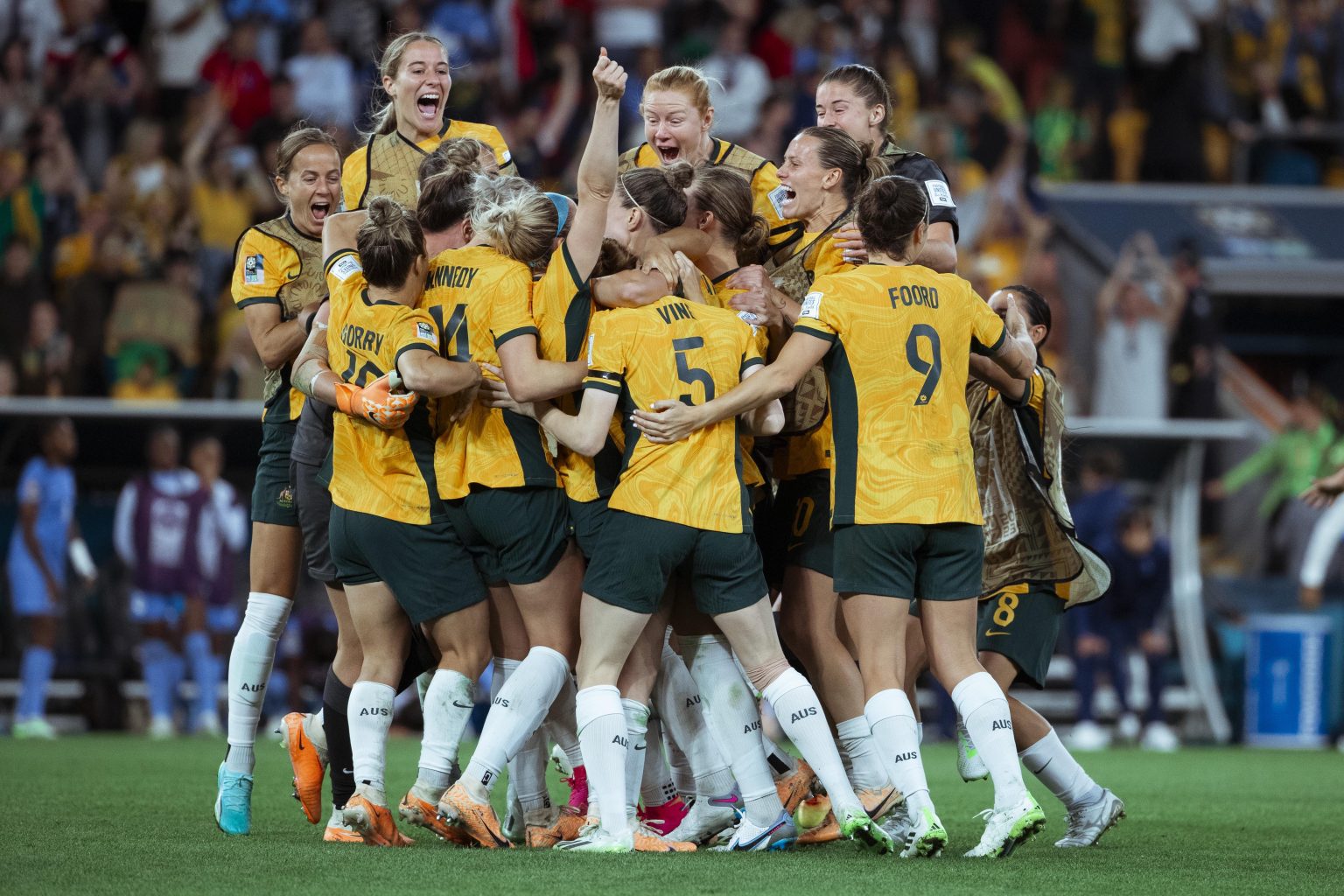
.jpeg)


